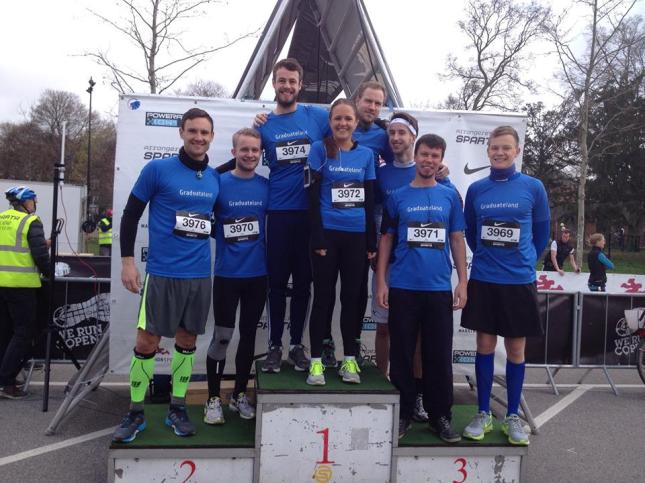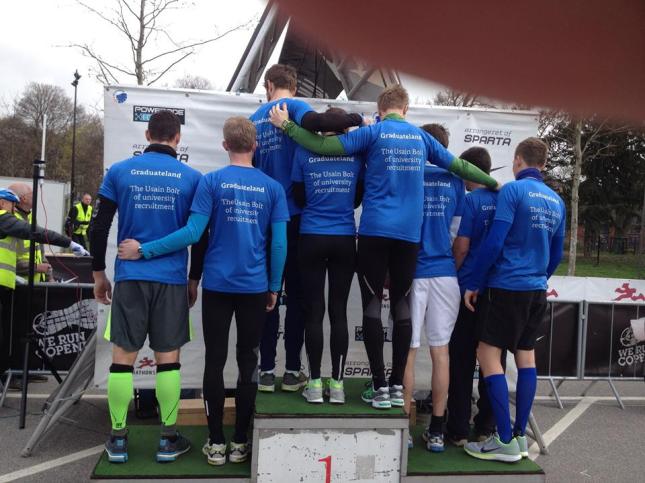There must have been written thousands and thousands of blog post about how to write a great CV and an interesting cover letter. That makes a lot of sense since it’s a critical step in landing a job in general, but also because people at the moment find it difficult to get jobs. The news papers are flooded with statistics about unemployment and the topic is alarmingly high on most politicians list of priorities.
Anyhow, as an insider in the industry, as a co-founder of a career portal, and as an employer in a company that has grown on the staff side from 7 to 27 in 10 months, I have a few insides that I suppose most people know, but I still see many people ignore. And I wonder how come these simple things are not common knowledge, and therefore incorporated into every job application that I know is buzzing back and forth out there.
As with traditional blogs I have prepared a list with a random number of tips that will increase the chance that your jobs application is taken into consideration, which ultimately increases the probability that you will be invited to the important critical job interview.

1. The Basics
Often the job description will let you know, that you should include both your CV and a motivational letter. Attach two separate documents as it enables the employer to print both, and share with whoever will be deciding who should be invited to a job interview. The agenda of these documents are different, and are to show different things; an introduction to your profile (CV: education and work experience) and an engaging description of why you are applying for the job (motivational letter: what you can contribute with, and why they should even bother to read your CV).
DON’T – write you motivational letter as the text body in your email, as it cannot be printed properly, and you lose the chance to earn points on how well you set up text in a word document.
DON’T – send your documents as word files. This is like sending a draft, and why would you send a file that pops up with tools to edit the brilliant stuff you just wrote? Just save as PDF and you’re good to go.
2. Make it interesting and appropriate
Try to put yourself in the position of whoever you expect to read your email/motivational letter/CV. Imagine what they are looking for, and take that into consideration when you describe why they should read on, and even open your attached CV, let alone print it and show it to that colleague who’s also involved in the recruitment process. Make sure you know who you are writing to. Is the job description written in a casual or serious tone (“We’re looking for a marketing ninja!!!” or “Business Analyst”)?
Make sure you know who you are writing to. Is the job description written in a casual or serious tone (“We’re looking for a marketing ninja!!!” or “Business Analyst”)?
Is it a startup company with young founders/employees, or a huge corporation where everybody’s wearing power ties (not the slim ones, of course)? Is it a social media company where people are working from bean bags, or a pharmaceutical company where a joke at the lab results in continent-wide pandemics.
DON’T – write too much. People have a tendency of scanning too long text paragraphs when they can – and in this case they can – and if your writing is not compelling as Facebook during a Methodology class your clever pointers may never be read.
DON’T – spell incorrectly. This goes for all text, of course. If you can’t spell, or if your grammar sucks (BTW this is a blog, so correct grammar is naturally less important), it either shows your incompetence, or the fact that you didn’t construct your application thoroughly.
3. Build a relevant CV
Many employers find the CV the most relevant. I personally could invite people to an interview after only reading a killer motivational letter, but it’s quite a risk to take. Stating the obvious then you should of course write all relevant information about your education and you work experience. Make it as straight-to-the-point as possible, meaning that you should only include what makes sense in the concrete job situation. If you’re applying for an undergrad internship it may make sense to write about you high school (gymnasium, in Danish). If you’re looking for a graduate job that requires some years of experience it’s only noise, and frankly, not interesting.
Describing all your classes during your studies can also be too much. It’s usually enough to state your degree programme (e.g. International Marketing and Management), and maybe you can add specifics if it correlates with the job you’re applying for e.g. online marketing for a SEO job. Remember this is primarily supposed to make the employer interested in you, and invite you to the interview, where you subsequently can elaborate upon how much you know and all the relevant courses you have taken.
When listing your work experience include only relevant work experience. It can come across as somewhat premature if you list that you have developed ‘ethics of working hard’ when you were a dishwasher at the local bowling alley, or that you ‘learned to deal with numerous clients’ as a bartender at Hard Rock Cafe. Everybody knows that you have consulted your online thesaurus for fancy sounding terminology to make irrelevant experience sound good.
If you don’t have relevant experience you may have to write this stuff anyways, but keep your take offs realistic. Instead focus on your personal skills, language skills, extra-curricular activities etc.
DON’T – design your CV in standard tables in a word document. It just doesn’t look good. Remember that the design of your documents reflect how well you present written information. Get some inspiration here
DON’T – write a CV that longer than 2 pages (max 3). Then you have included too much that is not relevant, and you risk that not even the important stuff is noticed. And don’t just jam the font size down to 9 with margins that are touching the edges of the paper.
4. Leverage your former bosses
Presumably you have had some great experiences at your former work places. Remember to write one or two names of you superiors, along with their titles and phone number. Chances are that nobody’s going to call them, but the fact that you’re listing them shows that you’re not concerned if they do. And if they are in fact contacted they may actually help you.
DON’T – write the names of people who will not be 100 % supportive of you. If there’s just the slightest hick-up related to the termination of your previous job they can easily be more loyal to a potential future employer than a former employee who they didn’t appreciate.
Lastly…
Basically, the person at the other end of your job application is just another human being, probably overworked and appreciative of anything that makes their life easier. If you can write an application that is easy to get an overview of, easy to read, and actually be what she’s looking for, then that should very well make you the perfect candidate that will slip through the eye of the needle. Remember that they are actively looking for something and it’s your job to make them acknowledge that you’re that something.
On a personal note I can reveal that my primary focus areas are two thing: experience with that specific thing that I’m recruiting for (someone with sales experience for a sales job etc.) and how they present themselves in the motivational letter. This last often shows how well they understood my job application, and I can also use this to determine whether I think they will fit into my organisation. Secondly, it’s of course important that applicants have some sort of education, but if they have taken a master, I rarely attach much to which direction. I suspect this is different in the case of technical positions, as nuclear engineers rarely make the ideal software developer (I think).
Anyways, hope this is something that can be used next time you write a job application. As stated in the headline, these tips are not rocket science, but as I constantly see job applications and CV’s that lack the fundamentals I concluded that they could bear being the focus of yet another blog post.

 The following months some of us have upped the distance, and we had one participating in the Copenhagen Marathon,
The following months some of us have upped the distance, and we had one participating in the Copenhagen Marathon, and two running the Stockholm Marathon. Again, for two of us it was the first time we ran marathons.
and two running the Stockholm Marathon. Again, for two of us it was the first time we ran marathons.






 Make sure you know who you are writing to. Is the job description written in a casual or serious tone (“We’re looking for a marketing ninja!!!” or “Business Analyst”)?
Make sure you know who you are writing to. Is the job description written in a casual or serious tone (“We’re looking for a marketing ninja!!!” or “Business Analyst”)?
